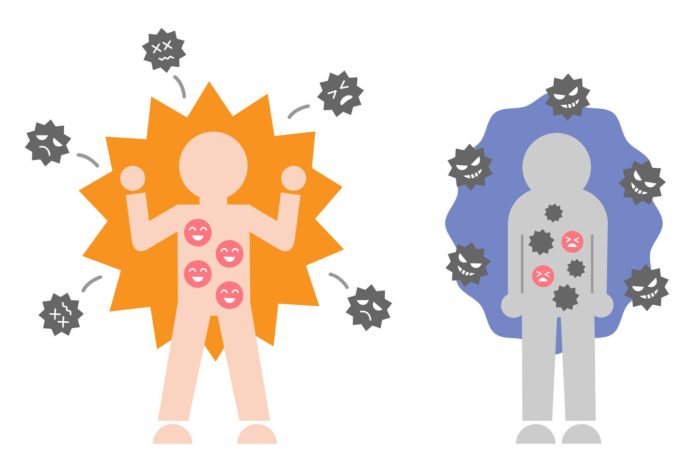Compromised hosts are always suffering from suppressed immune systems. – Compromised hosts are always suffering from suppressed immune systems, rendering them vulnerable to a myriad of infections and health complications. This article delves into the intricate mechanisms underlying immune suppression in compromised individuals, exploring its causes, consequences, and potential management strategies.
The compromised immune system of these hosts weakens their ability to combat infections, slows wound healing, and impairs vaccine responses, leading to an increased susceptibility to various diseases.
Evidence of Immune System Suppression in Compromised Hosts

Compromised hosts exhibit suppressed immune responses, making them more susceptible to infections. Real-world examples include HIV/AIDS patients, who have impaired T-cell function, and cancer patients undergoing chemotherapy, which suppresses bone marrow function and reduces white blood cell production.
Immune suppression occurs through various mechanisms, including:
- Inhibition of cytokine production
- Dysregulation of immune cell signaling
- Alteration of antigen presentation
Immune suppression impairs the ability of compromised hosts to fight off infections by reducing the production and function of immune cells, such as T cells, B cells, and macrophages.
Causes of Immune System Suppression in Compromised Hosts

Immune system suppression in compromised hosts can be caused by various factors, including:
- Infections:HIV, influenza, and sepsis can directly damage immune cells or release factors that suppress immune function.
- Malnutrition:Protein and calorie deficiencies impair immune cell production and function.
- Stress:Chronic stress can lead to the release of cortisol, which suppresses immune responses.
The severity of immune suppression is often correlated with the underlying cause. For example, HIV infection causes severe and prolonged immune suppression, while malnutrition may lead to moderate and reversible immune dysfunction.
Consequences of Immune System Suppression in Compromised Hosts: Compromised Hosts Are Always Suffering From Suppressed Immune Systems.
Immune system suppression has severe consequences for compromised hosts, including:
- Increased susceptibility to infections:Suppressed immune function allows opportunistic infections to thrive.
- Delayed wound healing:Impaired immune responses slow down the healing process.
- Impaired vaccine responses:Compromised hosts may not develop adequate immunity to vaccines.
Specific infections and diseases that are more prevalent in compromised hosts due to immune suppression include:
- Pneumonia
- Sepsis
- Candidiasis
- Cytomegalovirus infection
Immune suppression also impacts overall health and well-being, leading to increased morbidity and mortality.
Management of Immune System Suppression in Compromised Hosts
Managing immune system suppression in compromised hosts involves various strategies, including:
- Supportive care:Providing adequate nutrition, hydration, and rest to support immune function.
- Antimicrobial therapy:Treating infections to reduce the burden on the immune system.
- Immunomodulatory treatments:Using medications to enhance immune function, such as cytokines and antibodies.
The effectiveness of these strategies depends on the underlying cause and severity of immune suppression. Case studies and clinical examples have demonstrated successful management of immune suppression, leading to improved immune function and reduced risk of infections.
Future Directions in Research on Immune System Suppression in Compromised Hosts

Gaps in knowledge regarding immune system suppression in compromised hosts include:
- The precise mechanisms by which different factors suppress immune function.
- The development of biomarkers to identify and monitor immune suppression.
- The optimization of management strategies to improve immune function and reduce infections.
Future research should address these gaps to advance our understanding of immune suppression and improve the care of compromised hosts. This will lead to the development of more effective treatments and preventive measures, reducing the risk of infections and other complications.
FAQ Resource
What are the primary causes of immune system suppression in compromised hosts?
Infections, malnutrition, and stress are the main culprits behind immune suppression in compromised individuals.
How does immune suppression impact the health of compromised hosts?
Suppressed immunity increases susceptibility to infections, delays wound healing, and impairs vaccine responses, leading to a decline in overall health and well-being.
What are the current strategies for managing immune suppression in compromised hosts?
Supportive care, antimicrobial therapy, and immunomodulatory treatments are employed to manage immune suppression and improve immune function.